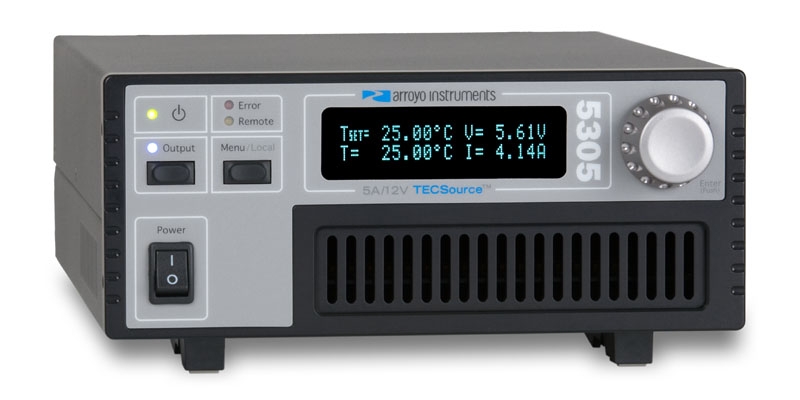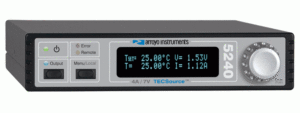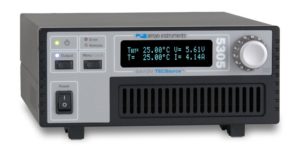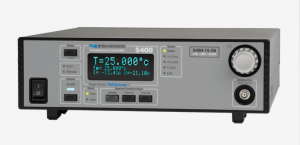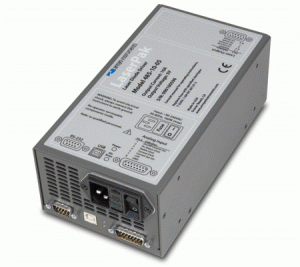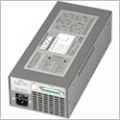Learn More About TEC Controllers
Thermoelectric coolers can also be referred to as Peltier coolers or Peltier controllers and solid-state active heat pumps. A TEC utilizes the Peltier effect (or thermoelectric effect) as the method of heat transfer to manage the thermal load. The Peltier effect is the phenomenon of an electric current being applied to a thermocouple, transferring heat from one side to the other.
Typically, the laser diode package or housing is mounted to the cool side, while the side that heats up is mounted to a heatsink which dissipates this excess heat. Thermoelectric cooling temperature Controllers are critical for optimal laser diode performance. The TEC controller provides current and voltage to the TEC component and receives feedback from a temperature sensor to automatically maintain the desired temperature (set point).
Our TEC Controller Products
Our TEC temperature controllers are available in a range of configurations, such as desktop units, combo units including the laser diode driver, and modules for OEM integration applications with powers ranging from 28W to 960W. These TEC controllers offer very stable control and an easy-to-use interface (OEM configurations do not have a user interface).
All controllers include a built-in, adjustable DC power supply which can be used to power external fans, often found in test fixtures. The temperature controller interface provides full control over your heatsink, providing all the settings, limits, and adjustments of the instrument in an easy-to-use Windows application. You can connect to multiple devices and can mix and match the types of instruments controlled to fit your application.
RPMC Lasers has been providing laser diode TEC Controller solutions for over 25 years. We can help you easily sort through the options to get the right TEC for your laser diode.
Deeper Dive into TEC Controllers
Directly mounting a TEC to the diode package can have detrimental effects for applications requiring extremely low noise and long coherence length.
As most people already understand, a laser diodes performance is highly dependent on its operating temperature, which is why most mid- to high-end laser packages utilize embedded thermoelectric coolers (TECs). The strong temperature dependence arises from two fundamental properties of the diode itself. First, as the temperature of the semiconductor varies, it’s gain band shifts up or down, this is known as redshifting and blueshifting. Secondly, as the temperature increases or decreases so does both the materials index of refraction and its physical volume, causing variations in the optical path length and resulting in changes in the longitudinal mode structure.
For most laser diode applications mounting a TEC at the base of the TO-can, or directly under the laser platform in a 14-pin butterfly package, provides enough temperature stability to produce a stable output. But, for high-end applications requiring extremely low noise and extremely long coherence lengths, the TEC itself can end up inducing higher frequency noise.
While on the surface this may sound counter-intuitive, when you take a look at how a standard DC switching power supply works, you will see that they inherently generate high-frequency noise due to the large current swings and the internal inductance and capacitance. In fact, this is the same fundamental principle that most pulse forming networks (PFNs) utilize on a much larger scale to drive the flashlamps in high energy pulsed laser systems. The diagram below shows a simplified example of a typical switching mode DC power supply, which would be used to drive a TEC. Read more on this topic in this article.
How Can We Help?
If you have any questions, or if you would like some assistance please Contact Us here. Furthermore, you can email us at info@rpmclasers.com to talk to a knowledgeable Product Manager.
Alternatively, use the filters on this page to assist in narrowing down the selection of TEC Controller for sale. Finally, head to our Knowledge Center with our Lasers 101 page and Blogs, Whitepapers, and FAQ pages for further, in-depth reading.
Check out our Online Store: This page contains In-Stock products and an ever-changing assortment of various types of new lasers at marked-down/discount prices.
Additional Resources
Whitpapers:
Blogs:

 SHIPS TODAY
SHIPS TODAY 